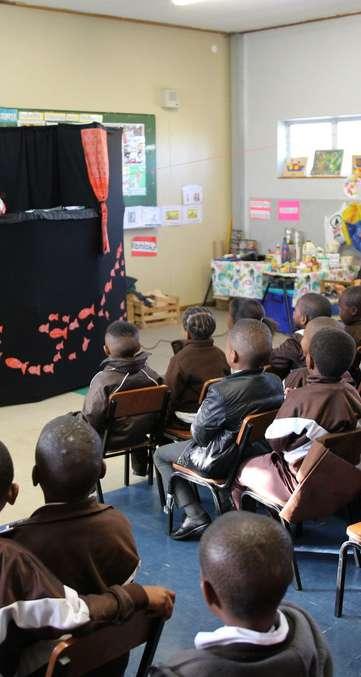
1 minute read
CLASS VISITS OF LEARNERS TO TWO OCEANS AQUARIUM


Advertisement
SCHOOL CURRICULUM-ALIGNED LESSONS ARE SUITABLE FOR ALL AGES
EDUCATIONAL PUPPET SHOWS FOR GRADES R-3
DISCOVERY CENTRE LESSONS FOR GRADES 1-12 WITH A SELECTION OF FUN
The Discovery Centre classrooms at the Two Oceans Aquarium are places of exploration and learning. School groups that visit the Aquarium spend time in our Discovery Centres, learning about a variety of ocean-related topics Qualified teachers specialising in ocean education are able to teach children, and adults, of various ages
A number of exciting lessons are available to choose from, with school curriculum-aligned themes
Lessons to choose from (Grades 1-3)
The following lessons are available to book either online or as an off-site lesson
Life in Rock Pools: We look at the variety of animals we find in our rockpools. We then discuss their structures and their adaptability to their surrounding environment We also learn about the effects of pollution on our marine animals
Fish: Do fish have the same senses as us? How are they able to live in water? We also look at some strange fish eg lionfish, pipefish, and sea horses as examples
Sharks (Grades 2 & 3): This fun lesson focuses on the most misunderstood animal of the ocean: the shark The learners are taught about the structure of this animal, its feeding patterns, and any fun facts about sharks
Lessons to choose from (Grades 7-9)
The following lessons are available to book either online or as an off-site lesson.
Basic Biodiversity: The lesson introduces the two oceans around South Africa and some of the ecosystems in the Aquarium This is followed by a study of some rock pool animals to establish their life processes, how tides affect them, principles of classification, and general biodiversity
Marine sustainability: The lesson introduces three themes critical to South Africa and the management of healthy coasts and marine resources These themes are biodiversity, HIPPO, seafood sustainability, and marine and coastal pollution
Rocky shore ecology: This lesson introduces typical South African rocky shores in terms of tides, abiotic and biotic factors affecting the distribution of seaweeds and animals, zonation patterns and the organisms that can be encountered in these habitats A variety of intertidal animals and seaweeds are referred to in this lesson
Sharks: This topic explores the history of sharks as members of the fish family, studies their adaptations to their marine environment (shape, fins, gills, skin, senses) and highlights shocking shark population stats and need for shark conservation
Fish: How do we know that an animal is a fish? Focusing on bony fish as a group of fish we look at their key characteristics eg fins, gills, streamlined shape etc. We also explore the importance of fish as a source of food and the importance of conserving them.



